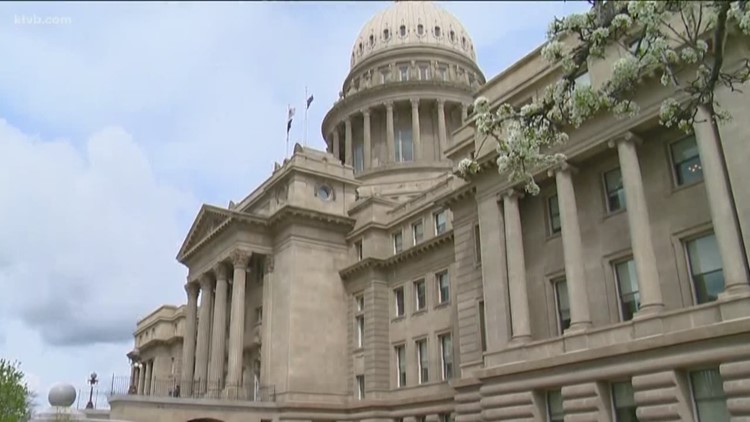BOISE, Idaho — Idaho Gov. Brad Little said Monday that he’s “dubious” about a legislative proposal to make counties kick in up to $10 million to help fund Medicaid expansion next year.
“Our budget request will basically harvest the savings that we have in corrections, that we have in Health and Welfare, we have in the other areas, to fund the state’s 10% of that Medicaid match,” Little told more than 200 county officials gathered in Boise for the annual conference of the Idaho Association of Counties. “That’s going to be embedded into my budget, and that’s what we’re going to need to do.”
Medicaid expansion already is funded for its first six months, from Jan. 1 to July 1, 2020, at no cost to the state general fund, through a combination of savings and $10 million from the state’s Millennium Fund, a tobacco settlement fund. The discussion now is about how to fund the state’s 10% share — the federal government will pay 90% of the cost — for the fiscal year that starts July 1, 2020. That’ll be an estimated $41.9 million.
Two weeks ago, after hours of discussion, a divided legislative panel charged with finding “equitable” ways to fund Medicaid expansion in Idaho voted along party lines to ask Idaho counties to kick in up to $10 million next year.
RELATED: Idaho's Medicaid expansion saga continues after first-round of proposed restrictions are rejected
“I’d be a little dubious, because I think we can fund it the way we’ve got it now,” Little said after his speech at the Boise Centre. He said there may be some more Millennium Funds tapped, as will occur during the current budget year.
He told the county officials, “Legislature writes the laws, I don’t. But last time I saw, local property taxes go to people in this room and not to the state.
“I don’t see any big land grab for all your property taxes,” Little told the crowd.
The interim legislative panel took its vote, which is preliminary, based on the idea that once Medicaid is expanded to cover Idahoans who now fall into a coverage gap, counties won’t have to spend as much on medical indigency expenses, which come out of local property taxes. The committee’s vote meant that proposal will be included in draft legislation that it’ll review at its next meeting Nov. 4; eventually, the panel will make a recommendation to next year’s Legislature.
Little said he doesn’t know enough about the specifics of the legislative proposal to have a position on it, but said he’s already got a plan to fund the state’s share of the costs in the 2021 fiscal year. “I think some of the legislators view it as a windfall for the counties,” he said.
Little told the conference, “Everyone knows my position. I would’ve written the initiative a little bit different if it’d been me, but so would a lot of other people. But I said I’m all in, and we’re going to implement it.”
County officials in the audience welcomed his comments, and raised concerns about the legislative proposal. Ada County Commissioner Diana Lachiondo said county officials are “certainly following very closely” what is proposed on the issue.
“I’m concerned that they may try to hit counties on both sides,” she said, both taking away some of their property tax money to fund Medicaid expansion, and also imposing limits on counties’ ability to levy property taxes.
Bonner County Commissioner Steven Bradshaw said, “I think we still don’t know how it’s going to get paid for. It sounds good, but I think as it looks right now, it’s going to put a pretty large burden on the counties unless they come up with a good plan. So far, they don’t have one.”
Little told the counties group that there are still many unknowns, including how many people will sign up for Idaho’s expanded Medicaid program and which waivers from federal rules will be granted; lawmakers asked for a slew of them, including controversial work reporting requirements. “The IMD (waiver) is the only one that’s probably a sure-fire thing,” Little said.
That waiver request, which was widely supported on all sides of the Medicaid expansion issue, would allow Medicaid to cover services from “institutions for mental disease,” a category of care currently not covered under Medicaid. Little said it would help both the state and counties deal with mental illness and substance abuse.
“We will go live the first of January,” the governor said. “In November, we’ll start signing up people, and we will have Medicaid expansion early next year.”
This article originally appeared in the Idaho Press, read more on IdahoPress.com.
More from our partner Idaho Press: Task force subcommittee endorses expanding all-day kindergarten



